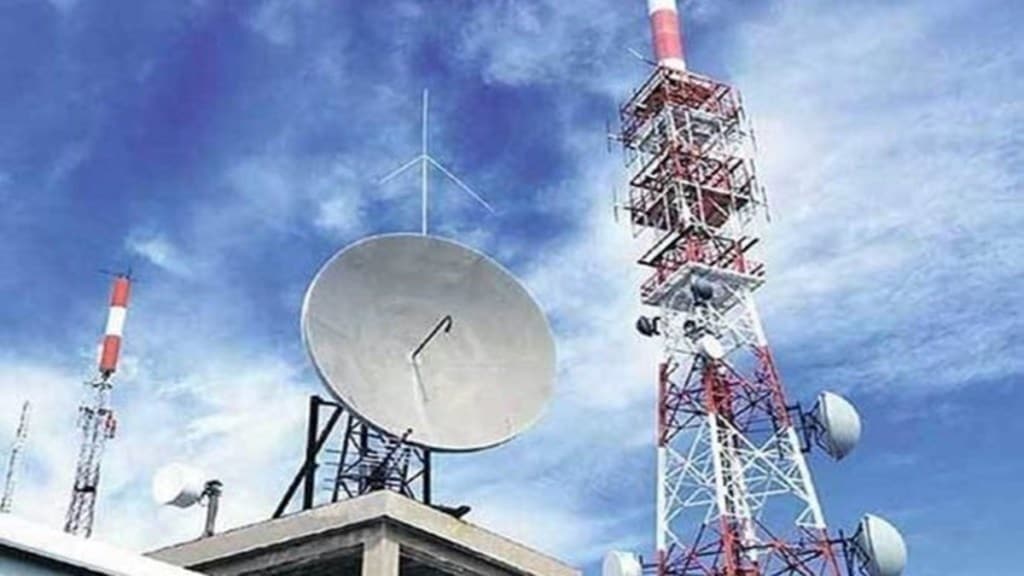Tata Group’s satellite communication service provider Nelco has withdrawn its application which it had earlier submitted to the department of telecommunications (DoT), to offer satellite-based broadband services to consumers in the country, according to people aware of the matter.
The company had applied for the Global Mobile Personal Communication by Satellite (GMPCS) licence in November last year to provide such services in collaboration with Canada-based satellite operator Telesat. Withdrawal of GMPCS licence does not rule out the possibility of company offering such services to consumers in future either by re-applying for the licence or through provisions in the space policy for which the government is yet to release the details, according to experts.
Also Read: Consultations for auction of satellite spectrum begins
The reasons for the company to withdraw its application could be due to specific issues in collaboration with Telesat or delay in completion of the LEO constellation by Telesat, sources said. In response to the story, the company did not comment on the specific questions as to why it has withdrawn its application for GMPCS, and any issues with regard to collaboration with Telesat. The company said, “Nelco had entered into a cooperation agreement with the leading global satellite operator, Telesat in the year 2020 and will be offering LEO satellite services as and when the constellation is operational.”
“Nelco plans to leverage the global technology advancements as well as the new regulatory environment to serve many more sectors in the Enterprise market and expand its offerings for the Consumer sector soon,” the company added.
To provide satellite-based communication services to consumers, including internet broadband companies in licensed service areas, companies need a Global Mobile Personal Communication by Satellite (GMPCS) licence from the government. The licence is issued for a period of 20 years, experts said.
“The company has all the requisite licenses and will apply for any additional licenses required for offering any new services as per the prevailing regulations in the country,” Nelco said in its statement.
Also Read: Telcos recorded Rs 4.17 lakh crore debt in 2021-22
Nelco, which offers satellite communication services like Bank ATM connectivity, in-flight communication services, and other satellite solutions to enterprises, holds the VSAT licence, Internet Service Provider (ISP) licence as well as the in-flight & maritime communication (IFMC) licence.
Last year, Nelco and Telesat conducted their first in-orbit demonstration of high-speed broadband connectivity in the country using the latter’s low-earth orbit (LEO) satellite. According to industry executives, Telesat had also cut down on the planned launch of its satellites.
Nelco’s withdrawal comes at a time when the satellite communication space has started gaining traction with companies such as Bharti Enterprises-backed OneWeb, Jio Satellite Communications, and Elon Musk-owned Starlink, firming up plans to offer such services.Currently, only OneWeb and Jio Satellite Communications have got licence for satellite communication services in the country and they can launch their services once they get the spectrum and other policy clearances. With regard to Starlink, the company was so far going slow in completing the formalities to get the GMPCS licence.
According to sources, the company in October last year had applied for the licence but was not proactively addressing the queries raised by DoT. However, the company has recently again started action on this front and may get the licence in the next two months, once its security clearance is through and it submits the responses to DoT’s queries.
Among the three players, experts believe that OneWeb would get an edge in terms of rolling out the services as the company has a robust constellation of 618 low-earth orbit satellites to offer internet services.
Last month, OneWeb executive chairman Sunil Bharti Mittal said that if the government does not delay spectrum allocation and space policy, the company would launch its services in India by July-August. “If the delay happens on the government’s side, which I hope not, we are just going to deprive ourselves from giving services because we cannot land this in India unless we have the permissions,” Mittal said.
The government last week approved the Indian Space Policy 2023 which will formally pave way for the private sector participation in the space sector, with the Indian Space Research Organisation (ISRO) focusing on research and development of advanced space technologies. However, the government is yet to release the document which includes details regarding the policy.
“The policy is likely to bring in significant changes and enable the Indian space sector to be more innovative, sustainable, and competitive in global space ecosystems. Nelco expects that the new policy may bring a lot of positive changes in the operating and regulatory environment for satellite communication industry and further promote international cooperation,” Nelco said.
On satellite spectrum allocation, the Telecom Regulatory Authority of India (Trai) has started the consultation process.
Satellite-based communications is extremely useful for providing broadband services in remote, hilly, and inaccessible regions. It is also the only medium through which communication can be established in disaster zones when normal communication gets affected.
According to EY and Indian Space Association, the space economy is expected to be a $13 billion industry by 2025, and of that satellite services and applications will constitute the largest 36% share.


